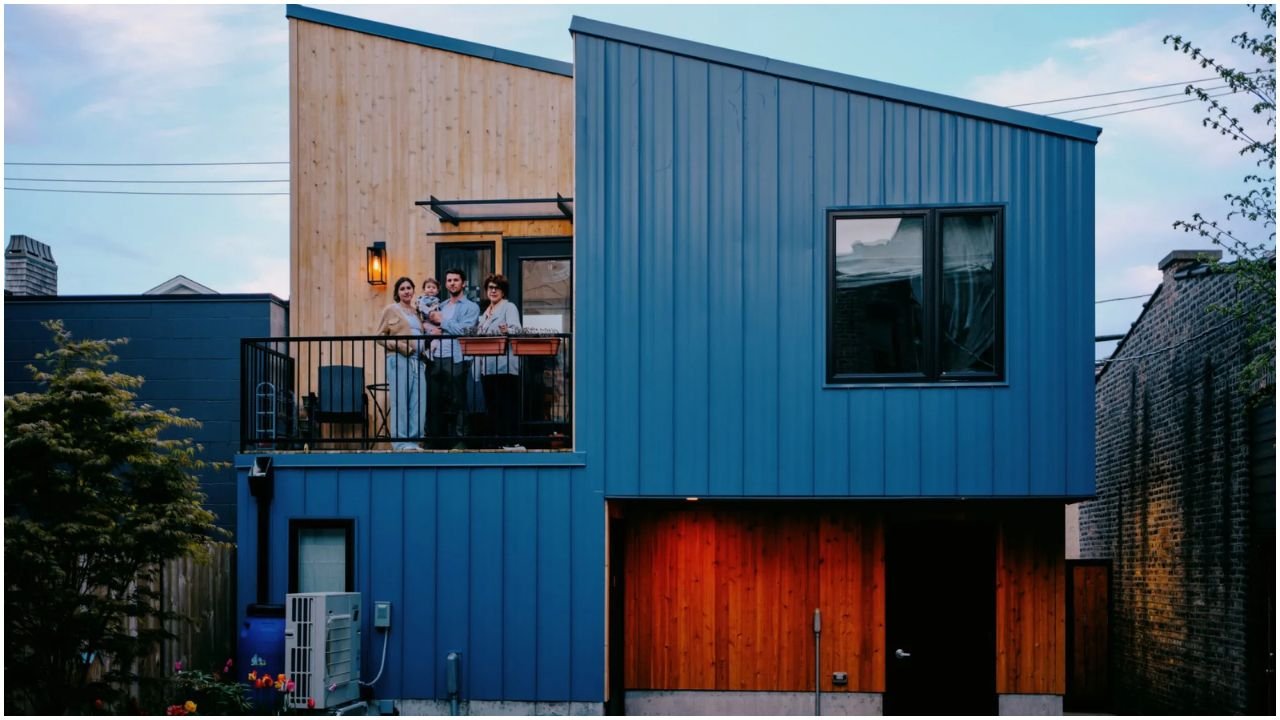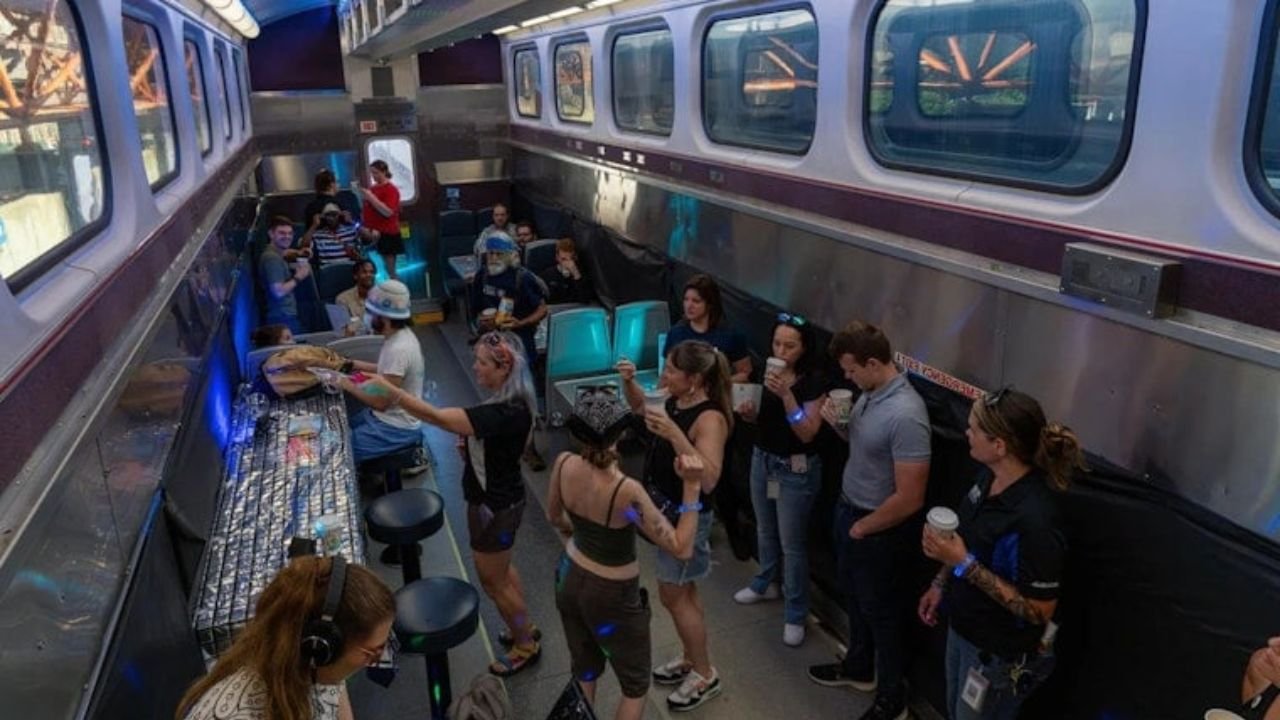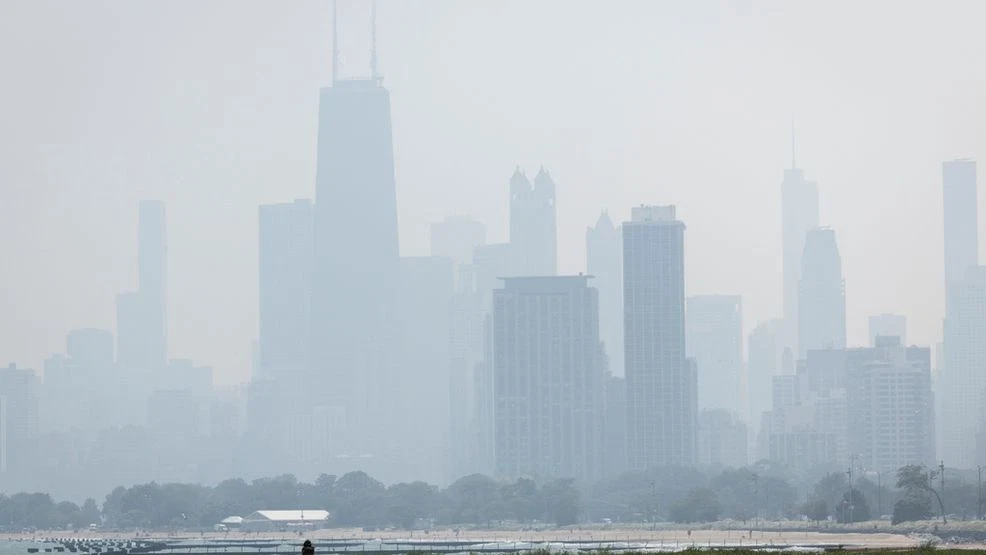CHICAGO — For Lakeview residents Brian and Fiona Peterman, building a small second home in their backyard meant more than just adding property value — it became a lifeline for child care, family support, and multigenerational living. But for most Chicagoans, their so-called “granny flat” remains illegal.
Despite a promising pilot program launched in 2021, Chicago still bans the construction of accessory dwelling units (ADUs) — also known as coach houses, garden apartments, or granny flats — in the majority of its neighborhoods. A gridlocked City Council and legal pressures tied to housing segregation are stalling a citywide solution, even as housing costs skyrocket and demand for affordable rentals climbs.

What Are ADUs — And Why Do They Matter?
ADUs are smaller, secondary homes built on the same lot as a primary residence. They can include:
-
Coach houses above garages
-
Basement or attic conversions into self-contained apartments
-
Detached backyard units
For seniors looking to downsize, young adults seeking independence, or families needing rental income or caregiving help, ADUs offer flexibility without displacement.
In the Petermans’ case, a two-bedroom unit atop their garage allowed Fiona’s retired mother to live nearby, help with their toddler, and pay affordable rent while staying close to family.
“This was life-changing,” said Brian Peterman, who spent nearly two years and $300,000 navigating red tape and construction costs before completing the unit in 2023.
A City Divided Despite a Promising Pilot
The City of Chicago legalized ADU construction in just five limited “pilot zones” on the North, South, and West Sides — but progress has been unequal:
-
Over 90% of approved units are in North Side zones
-
South and West Side zones include extra restrictions like owner-occupancy requirements
-
Basement conversions far outpace new coach houses due to cost
More than 300 ADUs have been approved since 2021, but experts estimate Chicago needs 100,000+ affordable units to meet demand.
“We need these in our neighborhoods,” said Ald. Daniel La Spata (1st), who supports full legalization. “They’ve allowed families to develop and stay together intergenerationally.”
Obstacles to Expansion: Politics, Permits, and Lawsuits
A 2024 ordinance to legalize ADUs citywide, sponsored by Ald. Bennett Lawson (44th), gained momentum — but has since stalled.
City officials blame:
-
Regulatory delays in City Council’s zoning committee
-
A federal civil rights complaint accusing aldermanic veto power of perpetuating segregation
-
Mayor Brandon Johnson’s administration, which wants broader, unrestricted ADU legalization across all neighborhoods

Even Lawson’s compromise — requiring extra approvals in low-density neighborhoods — has been shelved over concerns it could complicate legal settlements with HUD.
Meanwhile, other states like California and Oregon have successfully used ADUs to expand affordable housing without public subsidies. In Chicago, families like the Petermans are instead relying on personal lines of credit or struggling through months of bureaucracy.
What’s Next: State-Level Action or Local Reform?
State Rep. Kam Buckner (D-Chicago) and other lawmakers have proposed legislation that would override local bans on ADUs statewide. While the bill didn’t pass this spring, Buckner says he’s not backing down:
“I want the city to lead this conversation — I really don’t want the state to have to do this. But we will, if we need to.”
Gov. JB Pritzker has also voiced support for ADU legalization, calling them a tool to unlock underused housing space without new construction burdens.

Organizations like AARP Illinois back the effort, citing benefits for older adults who want to age in place affordably and independently. AARP’s national data shows ADUs typically rent for hundreds less than similar one-bedroom apartments.

How Residents Can Take Action
For homeowners interested in exploring or advocating for ADUs, here are some steps to consider:
-
Check current pilot zone eligibility: Visit the City of Chicago’s ADU page
-
Join community meetings in your ward to ask about ADU zoning
-
Contact your alderperson to express support for citywide ADU legalization
-
Support state legislation: Learn more about pending ADU bills at the Illinois General Assembly site
For many, the issue is deeply personal. “All it has done is given people more options for the property that they already own,” said Peterman. “It hasn’t changed the character of the neighborhood — it’s enhanced it.”
What do you think? Should Chicago allow more backyard homes and basement units to fight the housing crisis? Share your thoughts with us at ChicagoSuburbanFamily.com.















